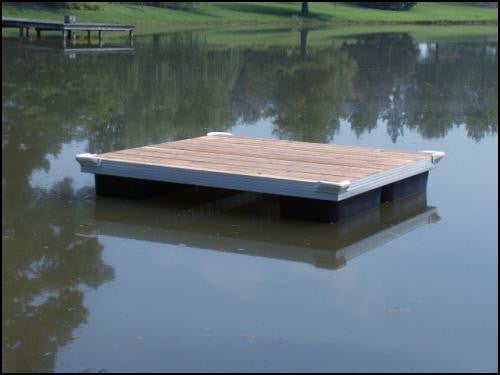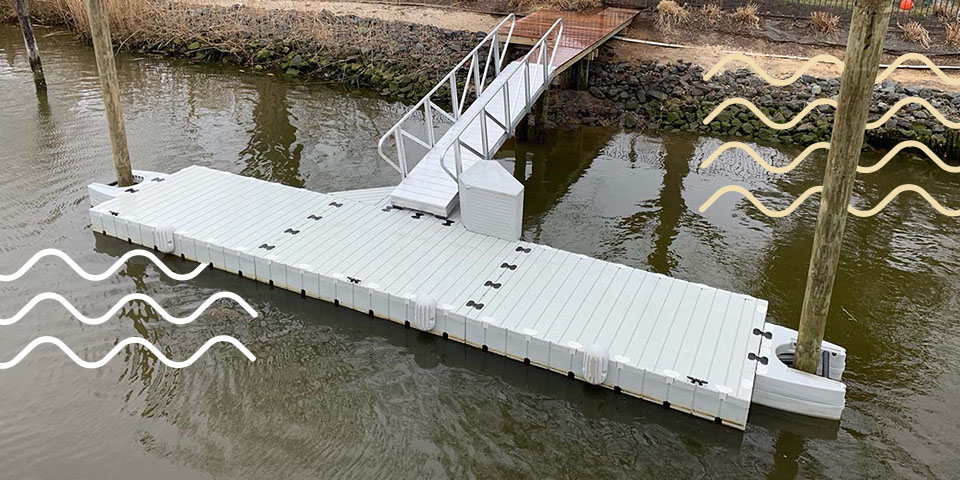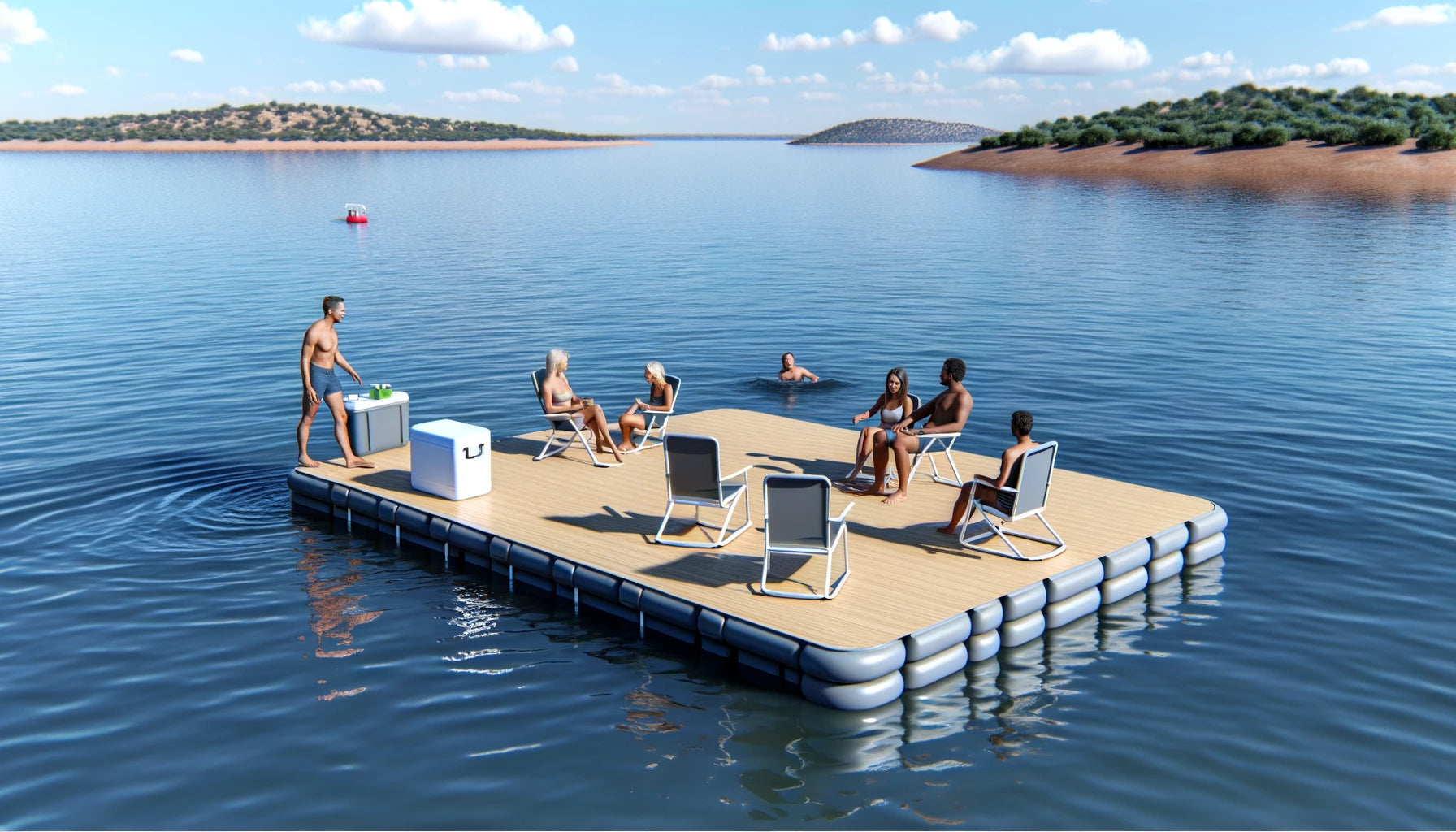Discover the Benefits of Choosing a Floating Docks Option for Your Beachfront Residential property
Discover the Benefits of Choosing a Floating Docks Option for Your Beachfront Residential property
Blog Article
The Ultimate Overview to Selecting the Ideal Floating Docks
Choosing the suitable floating dock requires an extensive understanding of numerous components that affect both efficiency and durability. Variables such as dock types, products, and essential attributes considerably affect your decision-making process.
Comprehending Floating Dock Kind
When choosing a drifting dock, it is necessary to comprehend the numerous types offered, as each offers distinct purposes and applications. Floating docks mainly fall under three groups: modular, stationary, and pontoon docks.
Modular docks are made up of individual sections that can be conveniently assembled or reconfigured, making them ideal for altering water degrees and varied uses, such as entertainment tasks or industrial procedures. Their flexibility permits personalization based upon particular requirements.

Pontoon docks are identified by their resilient framework, usually made up of numerous pontoons that provide stability and assistance. They are specifically appropriate for larger vessels and are commonly made use of in marinas or for beachfront residential properties. Recognizing these types help in selecting one of the most suitable floating dock to fulfill particular needs, ensuring ideal capability and safety.
Secret Products for Resilience
Picking the right products for floating docks substantially influences their toughness and longevity. One of the most typical products consist of wood, plastic, steel, and composite materials, each offering distinct benefits and limitations.
Timber, typically preferred for its aesthetic appeal, requires normal upkeep to withstand moisture and degeneration. Pressure-treated lumber can enhance resistance to rot, however it may still be at risk to insects and weathering.

Plastic docks, made from high-density polyethylene (HDPE), are immune to rust, UV radiation, and effect, making them a popular choice for coastal settings. Their light-weight nature additionally helps with easy installment and moving.
Steel docks, normally constructed from aluminum or galvanized steel, offer outstanding strength and resilience. They are resistant to corrosion, particularly when treated, yet may need extra insulation to prevent heat buildup in warm climates.
Composite products, combining timber fibers and plastics, supply the advantages of both wood and plastic, resisting moisture and fading while needing very little maintenance. - floating dock builder
Inevitably, the option of materials must align with ecological problems, meant usage, and upkeep preferences to make certain the floating dock remains functional and cosmetically pleasing with time.
Essential Attributes to Take Into Consideration
While the option of materials is vital, thinking about crucial attributes for floating docks is just as crucial to guarantee ideal performance and individual complete satisfaction. One essential attribute to assess is the dock's buoyancy ability, which determines exactly how much weight it can sustain without immersing. floating docks. This is vital for accommodating boats, personal boat, and even recreational activities
In addition, portability is a considerable factor to consider. Relying on your requirements, you may desire a dock that is very easy to transfer and dismantle, specifically if you plan to move it seasonally. Stability is one more crucial attribute; a properly designed floating click to find out more dock must decrease movement brought on by wind and water currents, giving a protected system for individuals.
Safety functions, such as non-slip surface areas and rounded edges, are also essential to prevent accidents, especially in wet conditions. In addition, take into consideration the availability of accessories, such as ladders, cleats, and bumpers, which can enhance the functionality of your dock.
Installation and Upkeep Tips
Establishing up and preserving a drifting dock requires cautious preparation and attention to detail to guarantee its longevity and ideal performance. Begin by choosing an appropriate area that decreases direct exposure to solid currents and waves, which can trigger wear and tear. Guarantee that the water depth suffices for the dock's height which it is anchored securely to avoid movement.
Throughout setup, comply with the maker's standards carefully, as incorrect assembly can jeopardize security. Use premium materials resistant to rust, such as light weight aluminum or treated timber, to enhance durability. Routinely inspect all parts, consisting of floats, ports, and anchoring systems, for signs of damage or wear.
Maintenance is crucial for prolonging the life of your dock. Clean the surface areas regularly to stop algae buildup and check for any loosened fittings that might require tightening up. If your dock makes use of flotation protection devices, guarantee they stay complimentary and undamaged from leaks. Furthermore, think about applying protective coatings to wooden elements to decrease weathering impacts. By sticking to these installment and upkeep ideas, you can enjoy a useful and reputable floating dock for several years ahead.
Budgeting for Your Dock
Budgeting for your dock is an important action that can significantly impact your overall contentment and investment in a beachfront property. Establishing a clear spending plan aids you navigate the numerous alternatives readily available and guarantees you make notified choices that go to my site align with your economic capacities.
Begin by establishing the dimension and design of the dock you require, as these elements will substantially affect the cost. Floating docks can differ significantly in rate, depending upon materials, buoyancy, and features like devices and ramps. Research various suppliers and suppliers to compare prices and understand the marketplace worth.
Along with first prices, consider continuous expenses such as upkeep, insurance policy, and potential repair services. Allocate funds for these persisting costs to avoid shocks down the line. It's also sensible to budget for any kind of needed permits or evaluations, which may be called for by local laws.
Last but not least, maintain in mind the prospective return on investment. A tactical dock can boost your property's value and allure, offering a positive monetary influence in the lengthy term. By budgeting efficiently, you can guarantee that your dock meets your demands without endangering your economic security.
Verdict
In conclusion, choosing the excellent floating dock demands a comprehensive assessment of numerous aspects, including dock types, materials, important functions, and setup processes. Mindful consideration of financial constraints will certainly additionally make certain an audio investment.

While the choice of products is crucial, taking into consideration vital features for floating docks is just as important to guarantee optimum performance and individual contentment.Setting up and keeping a floating dock calls for careful preparation and my sources interest to detail to guarantee its durability and ideal efficiency. Floating docks can differ considerably in price, depending on products, buoyancy, and functions like accessories and ramps.In verdict, selecting the ideal floating dock necessitates a detailed examination of numerous factors, consisting of dock kinds, materials, necessary features, and installment processes.
Report this page